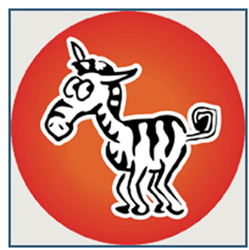Open-source products challenge dominant commercial products across nearly the entire software spectrum. Firefox rivals Internet Explorer as the browser of choice. OpenOffice rivals Microsoft Office as the productivity suite of choice. Gimp rivals Photoshop, as Thunderbird does Outlook. The list goes on and on.
 The arena of school management software may be where the next open-source battle is waged, with SchoolTool, an open-source program, at the forefront. The SchoolTool project is supported by the Shuttleworth Foundation, a non-profit organization founded by Mark Shuttleworth, the South African famous both for being the creator of the Ubuntu variety of Linux and for joining the club of multi-millionaires-turned-space-tourists. While SchoolTool is not the only school management program that is available for free, the SchoolTool project is the largest single collaborative effort to design an open-source school management system.
The arena of school management software may be where the next open-source battle is waged, with SchoolTool, an open-source program, at the forefront. The SchoolTool project is supported by the Shuttleworth Foundation, a non-profit organization founded by Mark Shuttleworth, the South African famous both for being the creator of the Ubuntu variety of Linux and for joining the club of multi-millionaires-turned-space-tourists. While SchoolTool is not the only school management program that is available for free, the SchoolTool project is the largest single collaborative effort to design an open-source school management system.
With the aim of being a universal school management application, SchoolTool is not designed specifically for schools in sub-Saharan Africa. For practical reasons the project has focused its design and development efforts in Europe, North America, and elsewhere. Nevertheless, the project does have roots on the continent. The fact that Mark Shuttleworth is African is one point of connection. Furthermore, in terms of basic needs sub-Saharan Africais one of the few regions of the globe where there is an immediate and clear demand for such a product. The vast majority of schools in North America, Europe, and parts of Asia havebeen using management systems for years, with customized, legacy systems that would be costly to transition from. In contrast, most schools in sub-Saharan Africa still do their record-keeping the old-fashioned way: with paper and pen.
But will SchoolTool succeed in Africa? In its current form, the answer is no. SchoolTool’s fortunes may be representative of those of open-source as a whole, which for economic reasons should be more strongly-embraced in Africa, but in reality faces obstacles towards adoption. The typical reasons why Africa doesn’t really “do” open-source are myriad, ranging from Microsoft conspiracy theories to the constraint of internet access, to publicity issues, to piracy (In the words of a colleague, “There’s already a great free photo editing program; it’scalled Photoshop.”).
One overlooked factor may be that some open-source programs may not be meeting the needs of potential-users across the continent.
SchoolTool’s ability to overcome the following obstacles will dictate the project’s future success or failure on the continent.
Linux
With technical exceptions to this rule, SchoolTool is only available in Linux. SchoolTool is for Linux, while the vast, vast majority of schools in Africa don’t use Linux. Before you can use SchoolTool you need to install Linux. And before you can promote SchoolTool you need to promote switching to Linux, which is more a challenge and constraint in and of itself.
Installation
SchoolTool is installed in a few steps, but there are caveats. One of those steps happens to be determining what version of Linux you’re using. Another is going to the terminal and… it doesn’t matter. Many new users won’t want to bother.
The Internet
Installing SchoolTool on a computer without internet access is a herculean task. This is an issue for schools, since most administrative computers in schools in sub-Saharan Africa aren’t connected to the internet.
Ease of Use
Only a low to moderate amount of tech knowledge is necessary to use SchoolTool. But how intuitive is the interface compared to commercial products? Just one example: the program is launched by opening a web browser and typing http://localhost:7080/ into the address bar.
Resolving Problems
If a user runs into a serious problem with the system there’s no easy way to solve it. What happens if the system becomes unstable or corrupted? What if a computer breaks down? There’s no easy way to port out student information and no on-the-ground tech support in case of a problem.
Unfinished Development
Many open-source products are not all things to all people. Out of the box, SchoolTool cannot be used effectively by schools across Africa. Customizations for different educational systems haven’t been completed yet. Developers in individual countries may charge for tailored versions of such systems, and at that point the comparative advantage of adopting SchoolTool over a regular commercially-available product is minimal.
If these limitations seem impossible to overcome, consider another open-source product of that has taken the continent by storm; Firefox. It’s free, quick and easy to install and to use, and available on Windows and almost any other platform. It is demonstrably superior to Internet Explorer 5 or 6, the status-quo option across the continent. And the inconvenience of switching to Firefox is as close to zero as possible, which is not a bad proposition for new and reluctant adopters.
